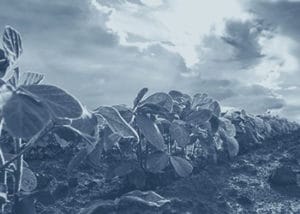Farmers Filing Dicamba Lawsuit
A dicamba lawsuit may be an option for farmers who have experienced crop damage caused by the broad-spectrum herbicide. As dicamba use has increased following the emergence of glyphosate-resistant weeds, drift of the highly toxic chemical has allegedly caused damage to crops adjacent to areas where dicamba has been used. Product liability attorneys can help farmers who have been damaged by dicamba.
For more information, contact Attorney Group today. Our consultations are free, confidential and without any obligation on your part. We can help answer your questions, and if you choose to pursue a claim we can connect you with an affiliated product liability attorney who can assist you throughout the legal process.
What is Dicamba?
Dicamba is a broad-leaf herbicide that has been available for decades to help farmers fight weeds. Historically used as a pre-emergent, its use increased in 2016 when Monsanto released genetically-modified, dicamba-resistant seeds for both cotton and soybeans. Reportedly, the introduction of these seeds is linked to the emergence of glyphosate-resistant weeds. Glyphosate is the active ingredient in the weed-killer Roundup.

Have You Seen a Dicamba Lawsuit Commercial?
You may have seen a dicamba lawsuit commercial on television and wondered whether you or someone you know have been affected by the product and, if so, whether you are eligible to pursue a claim against the manufacturer or others. The purpose of this article is to provide you with additional information so that you have a better understanding of your options.
Why is There a Dicamba Lawsuit?
When applied over the top of certain crops, such as cotton and soybeans, dicamba may drift and damage the crops of neighboring farmers. Dicamba was not approved for use on crops by the Environmental Protection Agency until late in 2016, but the herbicide potentially was used before the approval.
“One of the major disadvantages of dicamba compared to glyphosate [such as Roundup] is that it is much more “volatile,” meaning it easily becomes airborne and drifts away from where it is applied,” according to Modern Farmer.
“Historically, dicamba has been used in agriculture primarily as a pre-emergent (applied to the soil to kill weed seeds prior to planting a crop), since it could not be applied directly to crop plants. But this spring (2016) farmers began planting Monsanto’s new soybeans on about 1 million acres in the US, and have been spraying their fields with dicamba (to kill an especially pernicious strain of glyphosate-resistant pigweed)—which then drifts on the wind, damaging soybeans on other farmers’ fields that are not resistant to the herbicide.”
Dicamba complaints by farmers in Arkansas and neighboring states have risen. It is possible unapproved for on-crop use versions of dicamba are still in use. The brand names of these include Banvel, Diablo, Oracle, and Vanquish.
A dicamba lawsuit filed on behalf of farmers claiming to have been negatively affected by the use of dicamba from neighboring farms asks the court to certify it as a class action. The lawsuit seeks compensation for damages to crops, as well as an injunction against the sale and distribution of the chemical, and is based on claims that include deceptive trade practices, anti-trust violations, negligence, civil conspiracy. Punitive damages are also being sought by the farmers.
According to the Purdue Plant and Pest Diagnostic Laboratory, signs of dicamba crop damage may include:
- Twisted leaves
- Upward cupping on leaves
- Narrow, strap-like leaves on the youngest growth
- Above-ground roots on the stems of some annual flowers
The Purdue laboratory says herbicides like dicamba are “quite prone to drift…”
Lauren A. on May 16, 2016
Attorney Group reviewed by:"These guys are a pleasure to work with -- very strategic and very responsive, which makes for a great business partner! I can tell that they are passionate about making sure all clients get the attention and expertise they deserve."Rating: 5 ★★★★★
Herbicide Injury Look-alikes
The Purdue Lab also notes here are other potential causes of what can appear to be dicamba crop damage:
- Mite, insect, or disease damage
- Adverse weather
- Soil compaction
- Drought
- Root stress
- Improper soil pH
- Misapplied fertilizers
- Genetic mutations
- Road salt
Dicamba Lawsuit Claims
Dicamba lawsuits are based, in part, on the release by Monsanto and other defendants of dicamba-resistant seeds for which no EPA approved over-the-top dicamba-based herbicide was available. Dicamba has been used for decades as a pre-emergent herbicide, but its extreme toxicity to soybeans, cotton and other plants has prohibited its use in over-the-top applications. Dicamba lawsuit plaintiffs are alleging that farmers who used dicamba-resistant seeds were forced to use old dicamba formulations to prevent weed growth in their crops, resulting in damage to adjacent crops that were not planted with dicamba-resistant seeds. These plaintiffs attribute this damage to fault on the part of Monsanto and others.
At least one Dicamba lawsuit has been filed against Monsanto Company and others seeking damages and seeking injunctive relief. Asserting that it is “not an anti-GMO lawsuit,” but instead a “lawsuit about corporate greed, a rush to the market, and the resulting fallout,” the plaintiffs in the Dicamba lawsuit claims that the defendants “acted selfishly, focused on profits, and ignored their responsibilities to the market.”
At issue in the lawsuit are BASF’s Engenia herbicide, DuPont’s FeXapan™ herbicide Plus VaporGrip® Technology, and the following products alleged to be supplied by Monsanto:
- Roundup Ready 2 Xtend Soybeans
- Bollgard II XtendFlex cotton
- XtendiMax® Herbicide with VaporGrip® Technology
The Dicamba lawsuit claims that the Xtend products were marketed by Monsanto “as ‘blockbusters’ that would provide desperate farmers meaningful relief from ever increasing weed pressure,” and concedes that the “addition of genetic resistance to dicamba offers a benefit to farmers struggling with weed control.” Nevertheless, according to the lawsuit:
“This benefit, however, comes with a cost: dicamba is known to volatilize and drift, which results in the damage and death to neighboring crops and plants not resistant to dicamba.”
Greed is alleged to have “won out over responsibility” according to the dicamba lawsuit, as
“In 2015, although it lacked EPA approvals for over-the-top applications of dicamba, Monsanto released its XtendFlex cotton to farmers on a “limited” basis. Monsanto did so despite warnings from farmers and industry experts.”
By 2016, claims the lawsuit, there were at least 27 filed complaints against Monsanto related to use of dicamba in Missouri, 44 in Tennessee, and 26 in Arkansas. The dicamba lawsuit goes on to claim that in late 2016 and early 2017, the defendants won EPA approval of their over-the-top dicamba formulations.
“However, in doing so, Defendants withheld crucial information from the EPA. For example, Monsanto relied on misleading volatility testing (e.g., only testing volatility relative to other dicamba formulations and not determining a safe level of volatility). Also, despite allowing independent and unbiased testing by third parties (i.e., universities) on the efficacy of its over-the-top dicamba formulations, it did not allow similar independent and unbiased tests on volatilization despite receiving multiple requests.”
The plaintiffs in the dicamba lawsuit are farms and farmers who claim to have experienced damage to their crops caused by the herbicide. They seek compensation from Monsanto and the other defendants based on claims of:
- False and misleading statements
- Nuisance
- Trespass
- Negligence
- Product Liability
- Strict Liability
- Antitrust Violations
- Deceptive Trade Practices
- Civil Conspiracy
The plaintiff farms and farmers seek injunctive relief from the court, compensatory damages, and punitive damages.
Will Media Reports Impact Dicamba Lawsuit Claims?
Media coverage of dicamaba and damage to crops increased significantly in 2017. An article in the St. Louis Post-Dispatch dated August 15, 2017 had as its lede the following:
Scientists tracking reported dicamba damage released new data Monday that show the controversial weedkiller’s suspected footprint widening significantly, as numbers of investigations and estimated acres of soybeans injured spiral ever higher, especially across the Midwest.
According to an August 10, 2017 article in the Arkansas Times, a cotton and soybean farmer was killed in a dispute with another individual who worked on a neighboring farm suspected by the slain farmer as being the “source of drifting dicamba that had damaged some of [his] crops.” Noting the efforts of other farmers to have the use of the substance banned by state regulatory agencies, the article descxribes the alleged problems caused by dicamba as follows:
“[C]otton and soybean farmers in East Arkansas didn’t use it much during the growing season because dicamba is highly lethal to those crops, which have long been the lifeblood of the area. Even a light dose of dicamba on soybeans can cause curled leaves, stunted plants and a reduction in yield. A medium-to- heavy misting can kill them outright. That, combined with dicamba being prone to drift if applied improperly and its “volatility” — the tendency to change back to a vapor, lift off of crops and float away to neighboring fields under the right atmospheric conditions.”
According to Reuters, in July 2017 Arkansas banned the use of dicamba for 120 days, and increased the fine for illegal use of the herbicide to up to $25,000, from the previous amount of $1,000.
Another Reuters article, published August 9, 2017 and entitled, “Scant Oversight, Corporate Secrecy Preceded U.S. Weed Killer Crisis,” claims that when university researchers were provided with samples of the dicamba-based XtendiMax herbicide for testing, “the samples came with contracts that explicitly forbade volatility testing.” More strikingly, this approach “went unchallenged by the Environmental Protection Agency and nearly every state regulator.”
Whether these and other media accounts will impact dicamba lawsuit claims remains to be seen.
Affected farmers are encouraged to seek the advice of an experienced product liability attorney to learn more about their rights.
Contact UsDicamba Lawsuit News
- 2017Lawsuits are filed alleging wrongful conduct on the part of Monsanto and other defendants related to the release of dicamba-resistance seeds.
- 2016Farmers who had planted dicamba-resistance seeds, without an approved over-the-top dicamba herbicide, began using volatile formulations of dicamba to combat weeds.
- 2015Prior to receiving EPA approval for an over-the-top dicamba herbicide formulation, Monsanto began releasing dicamba resistant seed to farmers.
- 2009Monsanto and BASF entered a joint licensing agreement to accelerate the development of dicamba-based weed control products.
How a Dicamba Lawsuit Can Help Afflicted Farmers
When a company sells a defective product, it can be liable for any damage that result. Even if the product does not physical injury to a person, affected purchasers may be able other damages, including, in a dicamba lawsuit, damages to crops and other associated losses.
Affected farmers are encouraged to seek the advice of an experienced product liability attorney to learn more about their rights and remedies.

The Time You Have to Pursue a Claim is Limited. Contact Us Today.
For more information, contact Attorney Group. You can fill out the form on this page or contact us by phone or email. After you contact us, an attorney will follow up to answer questions that you might have.There is no cost or obligation to speak with us, and any information you provide will be kept confidential.
Please note that the law limits the time you have to pursue a claim or file a lawsuit for an injury. If you think you have a case, you should not delay taking action.
(888) 888-0612





